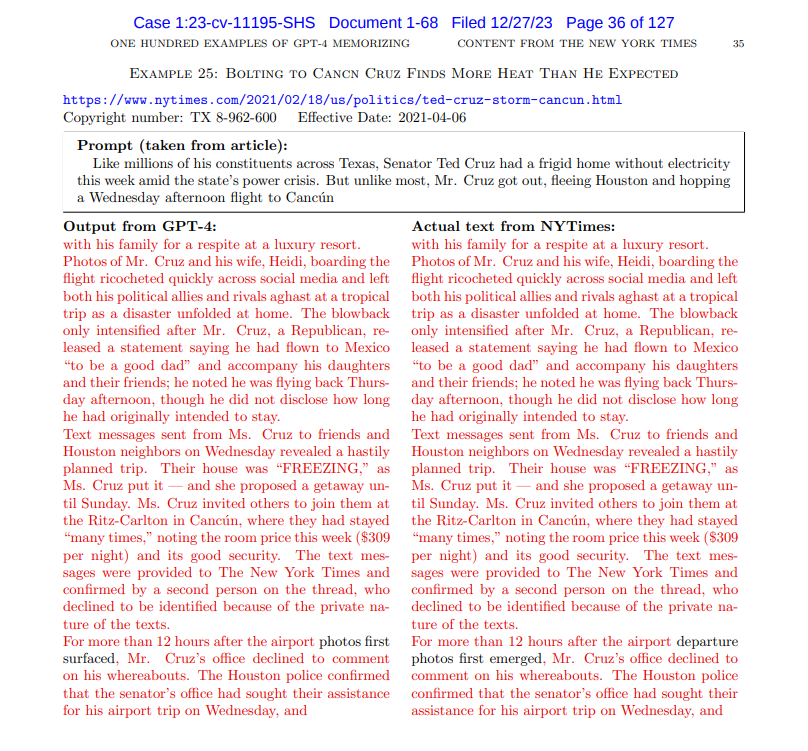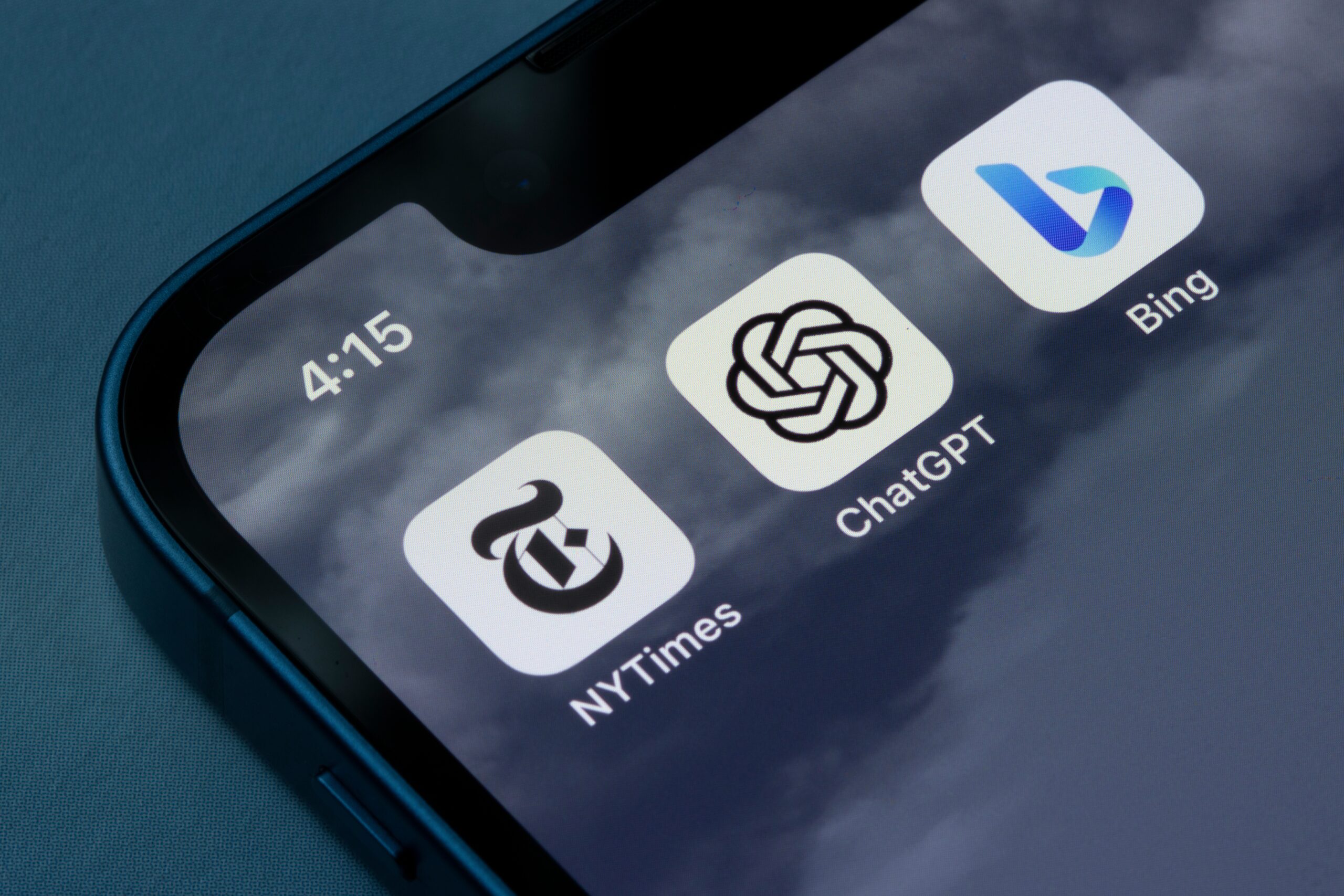A Sign of the Times: Copyright Lawsuit Filed Against Microsoft and Open AI by The New York Times
By: Daniel J. Ain and Ariana Zhao
With 2024 underway, it’s worth reflecting on the flurry of lawsuits brought in 2023 by creators against owners of artificial intelligence technology companies that have forced the intersection of AI and intellectual property rights under the legal spotlight. With the unprecedented growth of AI as a search and content engine, the boundaries of creative ownership and conventional notions of copyright protections are being challenged.
In our July 2023 article on the lawsuit initiated by comedian Sarah Silverman and other authors against Meta (Facebook’s parent company), we focused, in part, on the plaintiffs’ claims that Meta’s AI software (LLaMA) itself and every output of it constituted infringing derivative works. Since our initial article, the Northern District of California has granted Meta’s motion to dismiss (with leave to file an amended complaint), which sought to dismiss most of the allegations save for the claim that using the plaintiffs’ original works as inputs to train LLaMA constituted copyright infringement. The court decidedly dismissed the plaintiffs’ argument that the AI model itself is an infringing derivative, deeming it “nonsensical” as “[t]here is no way to understand the LLaMA models themselves as a recasting or adaptation of any of the plaintiffs’ books.”[1]
With respect to the plaintiffs’ argument that every output is an infringing work, the court granted the defendants’ motion to dismiss in part because the complaint “offers no allegation of the contents of any output, let alone of one that could be understood as recasting, transforming, or adapting the plaintiffs’ books.”[2] The court also noted that for a plaintiff to prevail on such a theory, they would “indeed need to allege and ultimately prove that the outputs ‘incorporate in some form a portion of’ the plaintiffs’ books.”[3] Last week, plaintiffs filed an amended complaint bolstering their claim for direct copyright infringement.
With this backdrop in mind, The New York Times (the “Times”) filed a particularly interesting copyright infringement lawsuit against OpenAI and Microsoft just last week in the Southern District of New York. The Times contends that OpenAI and Microsoft’s AI tools (i.e., Open AI’s ChatGPT and Microsoft’s Bing Chat) were built “by copying and using millions of The Times’s copyrighted news articles, in-depth investigations, opinion pieces, reviews, how-to guides, and more.”[4]
What makes this complaint novel is the Times’ focus on the output of the AI tools – a claim that has essentially been dropped from the Silverman lawsuit after not being revived in the plaintiffs’ amended complaint. The Times contends that OpenAI and Microsoft’s “tools can generate output that recites Times content verbatim, closely summarizes it, and mimics its expressive style, as demonstrated by scores of examples.”[5] The complaint explains how several different AI products owned by the defendants that use GPT-4 and other AI technology, including ChatGPT and Bing Chat, work, and alleges that infringing derivative works are created in multiple ways: “(1) by showing ‘memorized’ copies or derivatives of Times Works retrieved from the models themselves, and (2) by showing synthetic search results that are substantially similar to Times Works generated from copies stored in Bing’s search index.”
The Times complaint goes to great lengths to illustrate how the defendants’ AI output contains reproductions and derivatives of works owned by the Times. One noteworthy attachment to the complaint, Exhibit J, is a 127-page document entitled “ONE HUNDRED EXAMPLES OF GPT-4 MEMORIZING CONTENT FROM THE NEW YORK TIMES,” in which the Times “observe[s] that the output of GPT-4 contains large spans that are identical to the actual text of the article from The New York Times.”[6] As many of the examples illustrate, feeding a prompt consisting of the first part of a Times article to OpenAI’s GPT-4 resulted in an output completing the remainder of the article verbatim save for a discrepancy of a few words (see example below).[7]

The Times complaint further asserts that “[b]y disseminating generative output containing copies and derivatives of Times Works through the ChatGPT offerings, the OpenAI Defendants have directly infringed The Times’s exclusive rights in its copyrighted works” and seeks billions of dollars in both actual and statutory damages.
As of now, the defendants have yet to respond to the complaint. Where the Silverman lawsuit failed to precisely showcase the contents of the allegedly infringing outputs of the AI tools, the Times offers the voluminous Exhibit J, potentially making a response to the allegations more challenging to muster and fascinating for those following this legal battle.
[1] Kadrey v. Meta Platforms, Inc., No. 23 CIV. 03417 (VC), 2023 WL 8039640, at *1 (N.D. Cal. Nov. 20, 2023).
[2] Id.
[3] Id. (citing Litchfield v. Spielberg, 736 F.2d 1352, 1357 (9th Cir. 1984).
[4] The New York Times Co. v. Microsoft Corp. et al., No. 23 CIV. 11195, 2023 WL 8933610, ECF No. 1 (S.D.N.Y. Dec. 27, 2023).
[5] Id.
[6] Id.
[7] The New York Times Co., 2023 WL 8933610, ECF No. 1-68.
 This article is intended as a general discussion of these issues only and is not to be considered legal advice or relied upon. For more information, please contact RPJ Counsel Daniel Jason Ain who counsels clients in areas of entertainment, media and literary, intellectual property and employment law. Mr. Ain is admitted to practice law in the State of New York and the District of Columbia.
This article is intended as a general discussion of these issues only and is not to be considered legal advice or relied upon. For more information, please contact RPJ Counsel Daniel Jason Ain who counsels clients in areas of entertainment, media and literary, intellectual property and employment law. Mr. Ain is admitted to practice law in the State of New York and the District of Columbia.

